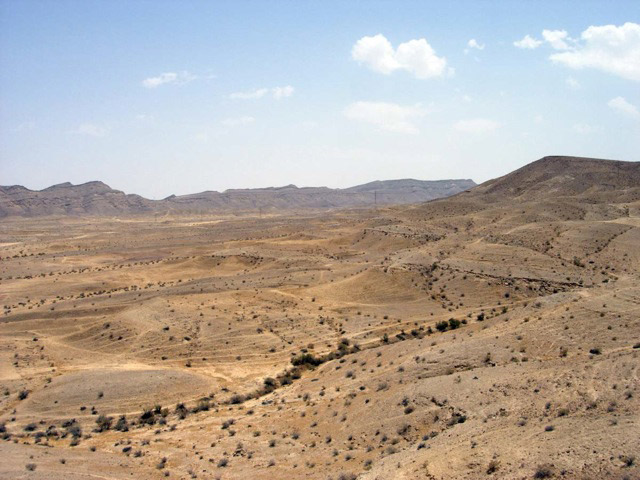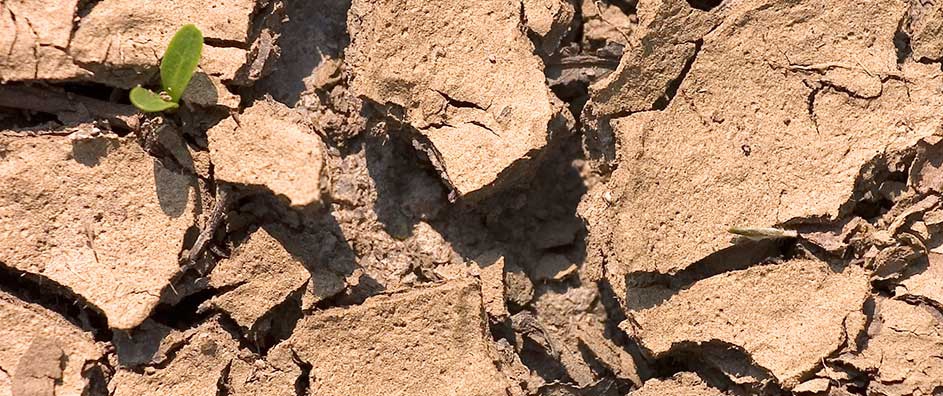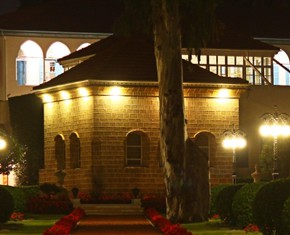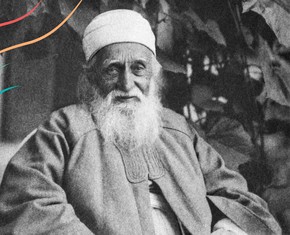The views expressed in our content reflect individual perspectives and do not represent the authoritative views of the Baha'i Faith.
It is He Who revealed the Book to you; in it there are verses which are of clear, established meaning and thus fundamental—the cornerstone and foundation of the book; and there are verses which are allegorical and thus open to interpretation. – Muhammad, The Qur’an, 3:8.
 If, when Abraham built a second altar in Canaan, he again used an absence of idols as a teaching tool, the Torah doesn’t mention the immediate effects of his actions. Or perhaps it would be more precise to say that the Book of Genesis has no explicit mention of any effects the altar had on those who saw it. What one finds, instead, is an abrupt and somewhat ominous change of scene: “Now there was a famine in the land; so Abram went down to Egypt to sojourn there, for the famine was severe in the land.” – Genesis 12:10.
If, when Abraham built a second altar in Canaan, he again used an absence of idols as a teaching tool, the Torah doesn’t mention the immediate effects of his actions. Or perhaps it would be more precise to say that the Book of Genesis has no explicit mention of any effects the altar had on those who saw it. What one finds, instead, is an abrupt and somewhat ominous change of scene: “Now there was a famine in the land; so Abram went down to Egypt to sojourn there, for the famine was severe in the land.” – Genesis 12:10.
The severe famine faced by Abraham in Canaan is often understood as a completely physical event, which geological history indicates is quite possible. Years of plenty followed by years of drought and scarcity were a common routine in that region.
On the other hand, when famine and hunger make an appearance in sacred scripture, they often have mystical implications.
A lack of food can indicate spiritual malnourishment rather than bodily starvation. Famine may also be linked to punishment for ingratitude, disobedience, or disbelief. Can it be possible, therefore, that by describing a famine descending on Canaan, scripture is hinting that Abraham’s words are falling on deaf ears? That those who hear him refuse to accept the nourishing meat of his revelation? Or, even worse, that Abraham is being persecuted again? Consider the implications of hunger as described in these passages from four of the Abrahamic religions:
Judaism: I will send a famine in the land, not a famine of bread, nor a thirst for water, but of hearing the words of the lord. – Amos 8:11.
Christianity: Jesus said unto them, I am the bread of life: he who comes to me will not hunger; and he who believe in me will never thirst. – John 6:35.
Islam: So let them worship the lord of this House, Who hath fed them against hunger and hath made them safe from fear. – Qur’an 106:3-4.
Baha’i Faith: Verily Thy lovers thirst, O my lord; lead them to the wellspring of bounty and grace. Verily, they hunger; send down unto them Thy heavenly table. Verily, they are naked; robe them in the garments of learning and knowledge. – Abdu’l-Baha, Selections from the Writings of Abdu’l-Baha, p. 224.
To escape the famine, whether of food or faith or both, Abraham and Sarah traveled to the south, through the arid Negev desert, where ancient paths twisted between sharp-edged hills of red stone and mounded dunes of glittering sand. After reaching the Sinai Peninsula, they turned in a more westerly direction and pressed forward into Egypt.
The heart of Egypt, centered on the life-giving Nile River and almost never affected by drought, was green and lush. Soil enriched by the annual flooding of the river produced abundant crops, and Egypt was accustomed to hosting refugees from drier regions.
In addition to plentiful food, Egypt had a long and dazzling history. By the time Abraham arrived, the famous pyramids of Giza had been standing for five centuries, the practice of embalming was more than a thousand years old, and Ra, the sun god, was the primary point of religious worship. Although Egypt had experienced a period of turmoil and divided government in the century prior to Abraham, it had quickly returned to its previous pattern of a strong central government based on a powerful pharaoh surrounded by a bevy of stern priests and advisors. According to the text of Genesis, as Abraham and Sarah approached the city in Egypt where the pharaoh lived, a curious thing happened. Abraham said to Sarah:
Behold now, I know that thou art a fair woman to look upon: Therefore it shall come to pass, when the Egyptians shall see thee, that they shall say, This is his wife: and they will kill me, but they will save thee alive. Say, I pray thee, thou art my sister: that it may be well with me for thy sake; and my soul shall live because of thee. – Genesis 12:11–13.
Sure enough, when they arrived in Egypt, everyone admired Sarah’s beauty. Even the palace officials were enchanted, and they sang her praises to the pharaoh. Egypt’s ruler, accustomed to having whatever he wanted, decided to appropriate this fascinating woman. By way of compensation, he showered Abraham with a number of gifts, including sheep, cattle, donkeys, servants, and camels.
With any other woman, the story might have ended with a lifetime of confinement. After pleasing the pharaoh for a night or two, she would have been dismissed from his presence and assigned to a chamber in a harem. There, amid dozens (maybe hundreds) of other women she would have lived out the rest of her life, visiting the pharaoh again only if he summoned her, which might be never. She wouldn’t starve, and there would be opportunities for communal work, plus entertainment in the form of feasts and celebrations–but she wouldn’t have any real freedom, either.
High walls kept the royal concubines isolated from the rest of the population, and official overseers were always on hand to make sure the women didn’t stray. Sarah, to the pharaoh’s consternation, was not a typical woman.
















Comments
Sign in or create an account
Continue with Googleor